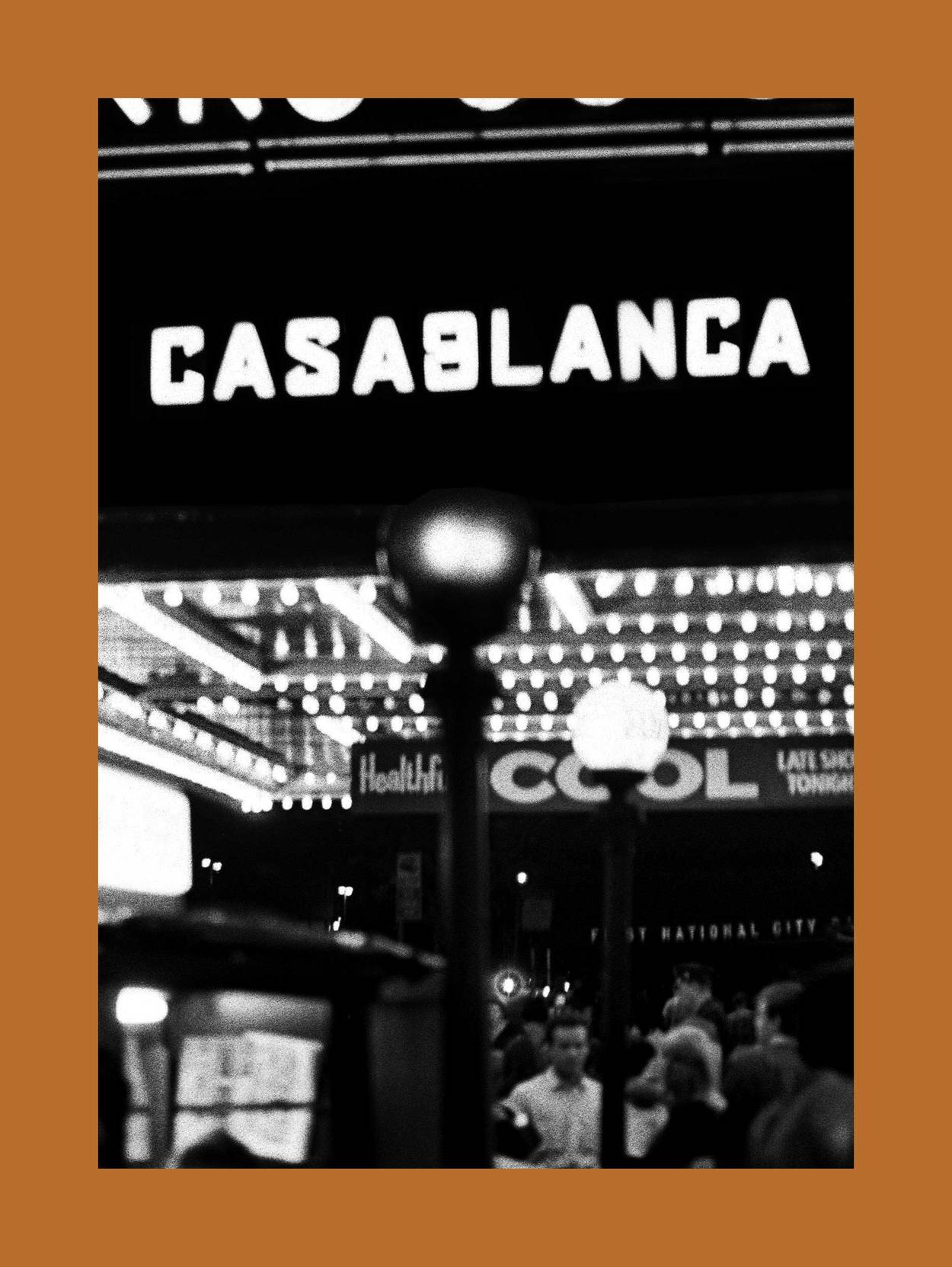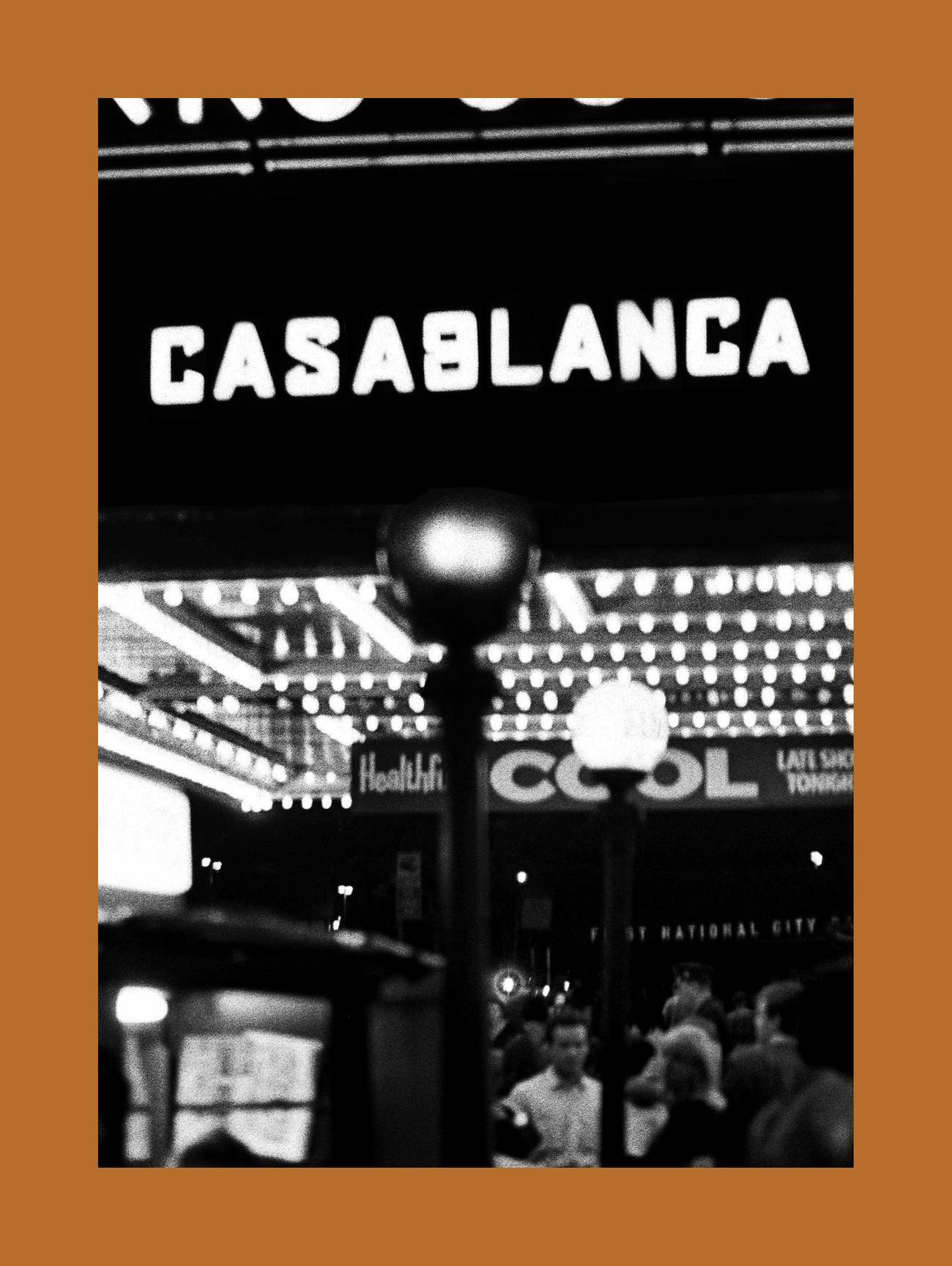Hard & Hardardt
Thanksgiving Fiction: This is how Jack Warner celebrates in America




So there I was, Nov. 26, 1942, stuck in a New York hotel with Jack Warner, waiting for the premiere of his latest picture.
“Hey,” yelled Jack. “Don’t call it a premiere. It’s not even a regular showing. What it is, is a technicality. We’ve got to open for a couple of days to be eligible for the Academy Awards. Not that this dog is going to win anything. Fat chance! My money is on Murder in the Big House. BORN FOR TROUBLE! Or this TERRIFIC NEW THE MYSTERIOUS DOCTOR picture. Even I got the heebie-jeebies at the rushes. There’s this guy, see, in the tin mines, and I swear to God he’s got no head. No head! How do they do that? It’s genius! It’s what I call moviemaking. MURDER STALKS IN THE MOORS! Not only that, it’s under budget. Say, look at the time! Will you hurry up and throw on some clothes? We came all the way across the country, right? To see this phony premiere. So get a move on, will ya?”
Ten minutes later Jack was dragging me through the lobby of the St. Regis hotel. “Hey, taxi!” he yelled, and as if he were on the Burbank lot, three yellow cabs came to a halt at the same time. He pushed me through the door of the first one and leaned toward the driver: “Get us to Avenue A!”
We pulled up in front of the Hollywood Theatre. There were no searchlights. There were no crowds. The b in the word Casablanca was placed backward on the marquee. A redhead sat in the ticket booth. Jack looked through the glass at her pale, freckled skin.
“Guess what?” said Jack. “You ought to be in the movies.”
“Guess what?” said the girl. “I already am. That will be six dollars.”
“Six dollars! American money? You’ve got to be kidding. That’s um, er; that’s, wait a second—”
“Three dollars each.”
“Highway robbery! Do you know who I am? My name is on the water tower!”
“And my name is on a two dollar bill.”
“Who writes your material, the Epstein boys? You wouldn’t be free later on to—”
“Look, Mister, do you want to see the picture or don’t you? Other people are waiting.”
So they were: Four or five men and women now stood behind us. Jack pulled me out of the line. “Don’t waste your money,” he told them. “Bogart goes off with Rains. Henreid—don’t ask me why—gets the girl.”
Behind us, from inside the booth, the girl cried out, “Happy Thanksgiving!”
“What did she say?” I asked.
“You got here last December, right? You poor kid, you don’t know about our beloved holiday. Come with me. You’re going to have the BIGGEST feast of your life. And it’s going to be on me.”
We walked over to the Second Avenue automat, where we got rolls and desserts from little glass windows and hot turkey specials from the steam table. Coffee came out of dolphins’ mouths. “OK, said Jack, as we took our seats. “You’ve got to have turkey. It’s a tradition. By the way, Maxim’s has nothing on Horn & Hardart. There were these Pilgrims, see. You know, these guys with buckles and funny looking hats. They were the victims of religious prejudice, which went on in those days just like now. So after a lot of persecution, like frogs and hail, they went 40 days in the desert with nothing to eat but stale bread, and finally crossed the Red Sea on the Mayflower, the same name as the hotel. Where was I? The turkey—delicious, in my opinion. With these mashed potatoes. Hey, I forgot the cranberry sauce! Well, the reason we eat turkey is because the pilgrims were starving, the way I said, and they had barely escaped from the pharaoh and it was the Indians who showed them how to plant corn with fish, which wasn’t so digestible, they were like bitter herbs; so then they brought them these turkeys, the breast meat, the drumsticks, the works, and everybody was so happy they danced around the golden calf and bought the whole island of Manhattan for bupkis, and that is why we ask Why is this day so special and don’t mix milk with meat—notice there isn’t any cream in that coffee—and count our blessings and to grandmother’s house we must go.”
He finished his plate and started to mop up the gravy on mine. His mouth was full, but he kept on talking: “That’s Americana, as you krauts are going to find out when we get to Berlin. And I’ll tell you something else. There was this guy, John Smith, if you can believe a name like that, in love with a lovely Indian maiden. Think Lena Horne. And if it weren’t for the color line—are you going to finish that pumpkin pie?—which someday I have the dream to challenge once I can talk Harry into it: Well, then we’re going to make this tremendous vehicle, a colossal picture all about it. HE DARED TO LOVE AS NO MAN HAD BEFORE! SHE LEFT HER TRIBE TO FOLLOW HER HEART! Forget about all that crap that’s playing at the Hollywood Theatre. A LOVE STORY AS OLD AS AMERICA ITSELF!
Outside, Jack hailed another taxi. This time four of them jostled for position around us. “The St. Regis,” he said to the lucky driver. “And make it snappy.”
Before we turned the first corner he had his hand on my knee. “Come here, Pocahontas.” His other hand was on my neck. “This is how we celebrate in America, the same as in the desert: for I don’t know maybe 5,000 years.”
Adapted from ‘Hill of Beans: A Novel of War and Celluloid,’ reprinted with permission of University of New Mexico Press.
Leslie Epstein teaches creative writing at Boston University. His three Leib Goldkorn books were recently published as The Goldkorn Variations: A Trilorgy (no typo). His play King of the Jews runs from Oct. 28 to Nov. 18 at the HERE Theater.